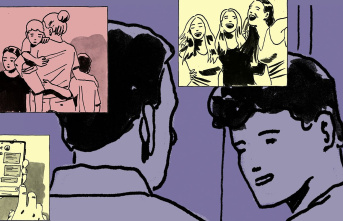The coordinator of the 'Jaime Gil de Biedma' International Poetry Prize, Juan Manuel de Prada, assured this Thursday that the 13 works selected by the jury as finalists for the 32nd edition are "I would dare to say among the highest quality in the award history. This was indicated in his first speech after accepting the replacement of Gonzalo Santonja, along with Mª Antonia de Isabel Estrada, who has also joined the jury, which will meet on Monday, June 6, at the Segovia Provincial Council, to choose the winning poems and second prize.
The prejury, coordinated by M.ª Antonia de Isabel Estrada, and with the participation of Juan Manuel de Prada, chose the 13 finalist collections of poems from more than 1,448 works submitted: 'Removal Order'; 'The men who killed my mother'; 'The middle gray color'; 'Girl with blackbird in hands'; 'The vocation of rowing'; 'A supermarket in Andalusia'; 'The waters of Castalia'; ‘Delirium non tam tremens’; 'Mother tongue'; 'Liquid Sand'; 'The Secret Wedding of Elisabeth Taylor' and 'Served Cold'.
The members of the prejury are Carlos Cantero, Fermín Herrero and Demetrio Martín. De Prada has highlighted "the enormous work" of all of them to make this selection of poems that are "scrupulously read." Each one receives a batch of poems, to choose the ones that seem best to him and put it in common with the rest of the components. The 13 pre-selected works have passed through the hands of all the members of the pre-jury.
The coordinator of the 'Jaime Gil de Biedma' has affirmed that the components of the prejury and jury of this award "are not aesthetically sectarian" and are "capable of appreciating the values of work with aesthetic postulates with which they do not share". A circumstance that has given him international prestige and is the result, as he has pointed out, also of the work carried out over 30 years by the previous coordinator, Gonzalo Santonja.
2












